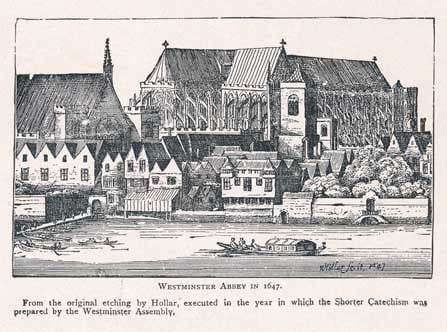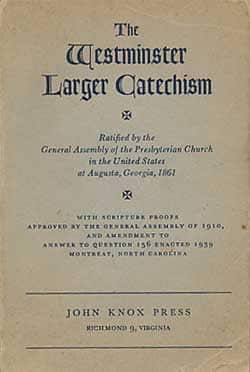This Day in Presbyterian History: Only Christ
One can sum up the Reformed faith by listing five “only’s” — only Scripture, only Christ, only grace, only faith, and only to the glory of God. We look today at the second “only” in “Only Christ.” The apostle Paul would remind us in 1 Timothy 2:5 that “there is one God, and there is one mediator between God and men, the man Christ Jesus.” (ESV)
With another date of only localized Presbyterian topics, we return on this last day of March 31, to the Shorter Catechism of the Westminster Standards. In question and answer 21, we read the words “The only Redeemer of God’s elect is the Lord Jesus Christ, who, being the eternal Son of God, became man, and so was, and continues to be God, and man, in two distinct natures, and one person, forever.”
We speak first about “the only Redeemer of God’s elect.” The Lord Jesus Christ is the only Redeemer to those whom the Father has given to the Son, as that phrase is continuously found in the high priestly prayer of Jesus in John chapter 17, or “the elect.” Peter clearly preached in Acts 4:12, when declaring the good news of eternal life in the days following the Ascension of Christ, that “there is salvation in no one else, for there is no other name under heaven given among men by which we must be saved.” (ESV)
See the repetitive statements! Despite what the Bahai religion states, despite what other religions claim, despite what your unbelieving neighbor believes, there is no one else! There is no other name under heaven! There is no other name given among men! It is ONLY CHRIST.
We need to echo the testimony of the apostle Paul when he wrote, “For although there may be so-called gods in heaven and on earth — as indeed there are many ‘gods’ and many ‘lords’ — yet for us there is one God, the Father, from whom are all things and for whom we exist, and one Lord, Jesus Christ, through whom are all things and through whom we exist.” (1 Corinthians 8:5, 6 ESV)
Last, our Confessional fathers remind us that the Lord Jesus Christ is both God and man, in two distinct natures as eternal deity and true humanity, yet only one person, forever. Our finite minds may not be able to fully understand it. But God’s Word, the Bible declares it, and on that Scriptural teaching we rest, firmly committed to it.
Words to Live By: Only Christ! That is our watchword. Only Christ! That is our confession. Only Christ! He is our hope. Only Christ! He is our sole foundation for faith and life.
Through the Scriptures: 1 Samuel 17 – 20
Through the Standards: Proof Texts of Christ the Redeemer
John 1:1
“In the beginning was the Word, and the Word was with God, and the Word was God.” (ESV);John 1:14
“And the Word became flesh and dwelt among us, and we have seen his glory, glory as of the only Son from the Father, full of grace and truth.” (ESV);Galatians 4:6
“But when the fulness of time had come, God sent forth his Son, born of woman, born under the law, to redeem those who were under the law, so that we might receive adoption as sons.” (ESV);1 Corinthians 15;3, 4
“For I delivered to you as of first importance what I also received: that Christ died for our sins in accordance with the Scriptures, that he was buried, that he was raised on the third day in accordance with the Scriptures.” (ESV)Hebrews 13:8
“Jesus Christ is the same yesterday and today and forever.” (ESV).Read also Philippians 2:5 – 11.



